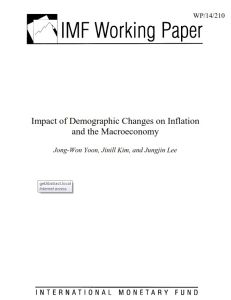Join getAbstract to access the summary!

Join getAbstract to access the summary!
Jong-Won Yoon, Jinill Kim and Jungjin Lee
Impact of Demographic Changes on Inflation and the Macroeconomy
IMF, 2014
What's inside?
Evidence suggests that population trends will have far-reaching economic implications.
Recommendation
Economists Jong-Won Yoon, Jinill Kim and Jungjin Lee offer an advanced analysis of global demographic shifts and their economic effects. Declining birth rates and longer-lived populations, particularly in developed countries, will have serious macroeconomic implications. People’s transitions from young borrowers to middle-aged savers to elderly spenders influence factors such as growth in per capita GDP, a country’s ability to balance its budget and inflationary pressures. getAbstract recommends this scholarly research to policy makers, who seldom consider demographic changes when deliberating on economic strategy, inflation and interest rates. Perhaps they should.
Summary
About the Authors
Jong-Won Yoon is a former executive director at the International Monetary Fund, where Jungjin Lee is a senior research officer. Jinill Kim is a professor at Korea University.


















Comment on this summary